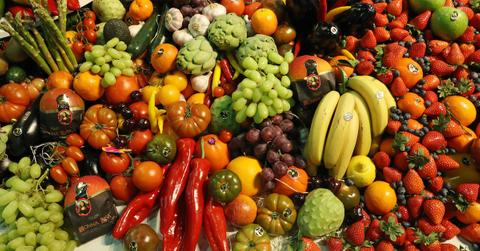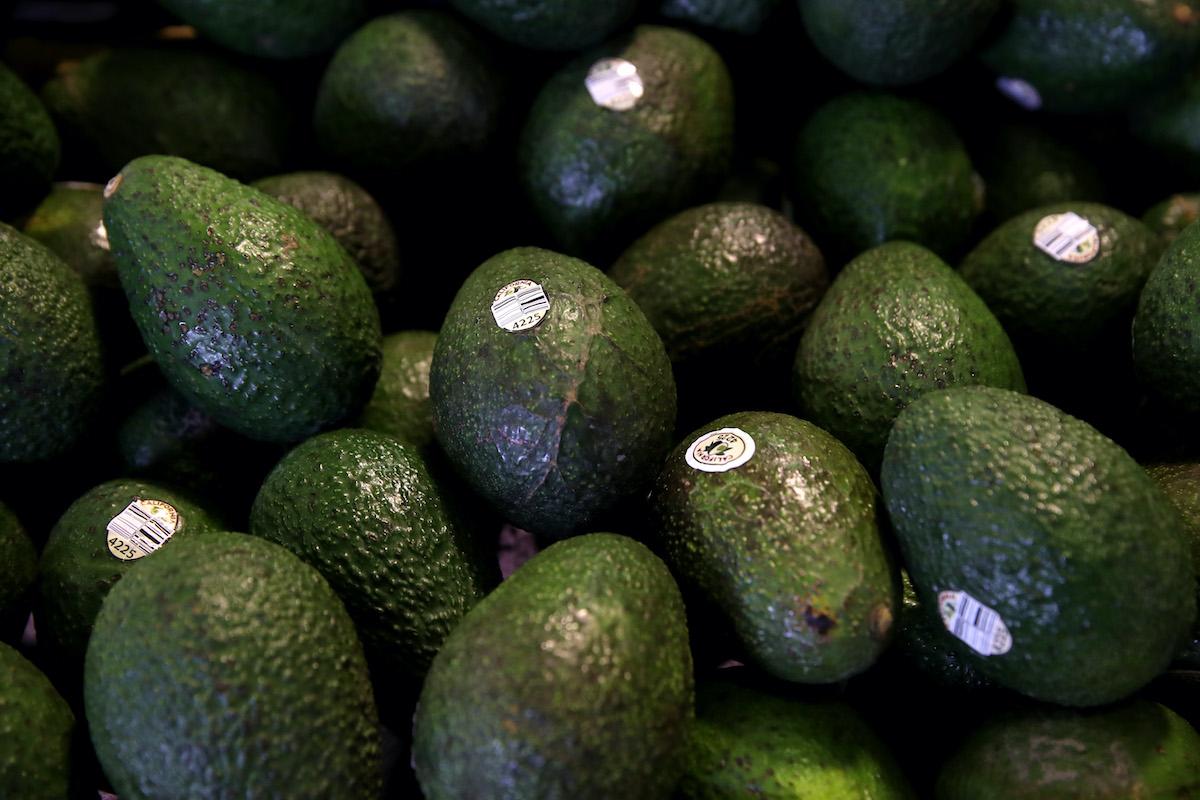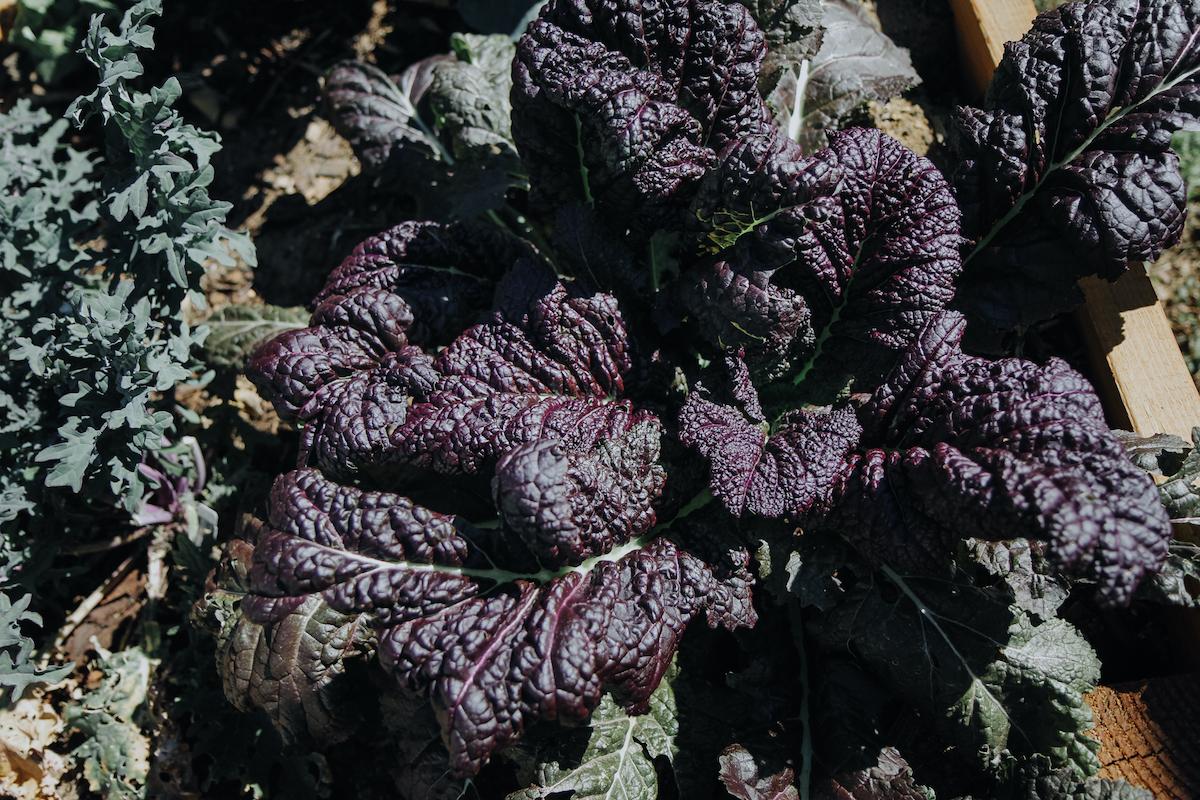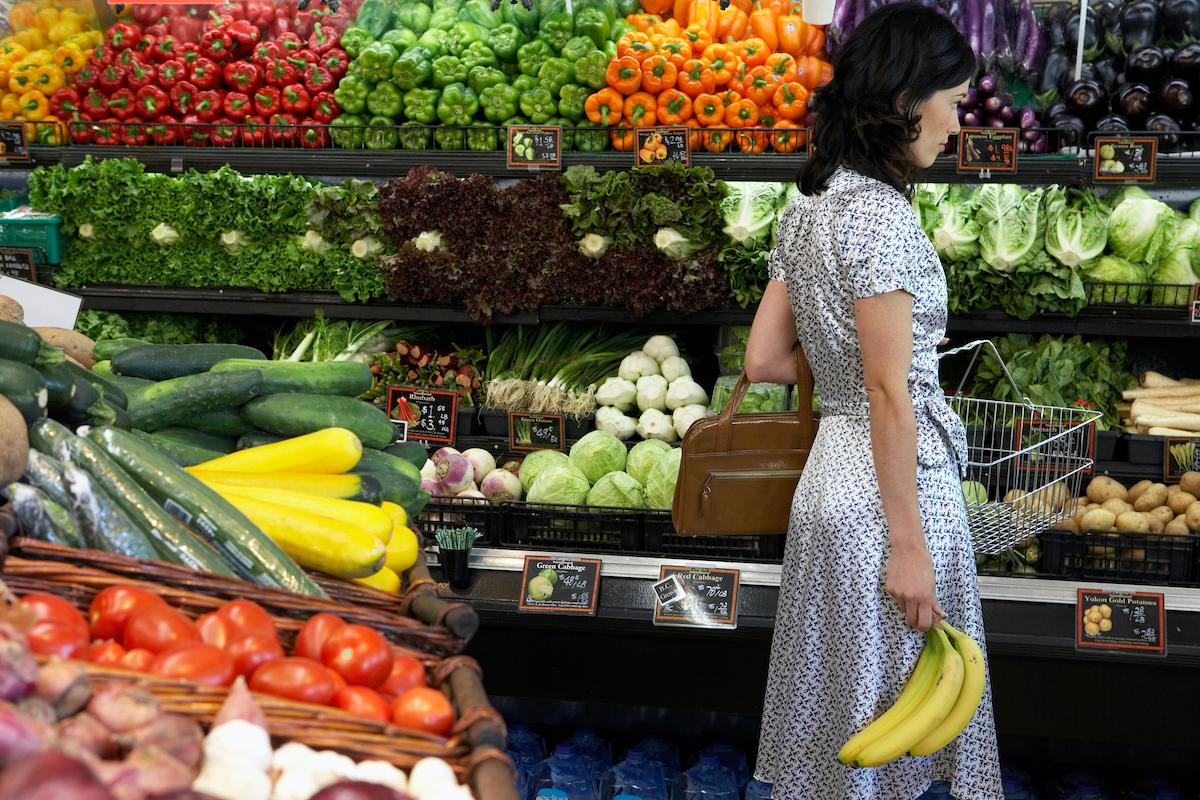2021’s Dirty Dozen and Clean Fifteen Are Here, With New Pesticide-Laden Veg (Exclusive)
Updated March 17 2021, 9:10 a.m. ET

Just in time for the spring harvest, the Environmental Working Group (EWG) has released its annual Shopper's Guide to Pesticides in Produce, aka the 2021 Dirty Dozen and Clean Fifteen. Every year, there are a few changes to the lists, which advise U.S. shoppers on which fruits and vegetables they should buy organically, to avoid high levels of pesticide exposure through their diet.
To learn more about this year’s lists, which dropped on March 17, we interviewed EWG toxicologists Thomas Galligan and Alexis Temkin. Keep reading to check out the 2021 Dirty Dozen and Clean Fifteen, and to hear the experts’ best advice on avoiding pesticide exposure.
The 2021 Clean Fifteen contain low pesticide residue.

Avocados retain their No. 1 spot on the Clean Fifteen.
The Clean Fifteen is a list of fruits and vegetables that contain the lowest concentration of pesticides in the U.S., even when they are grown with pesticides (aka conventionally). The EWG finds the produce on the Clean Fifteen to be the 15 safest fruits and veggies to purchase conventionally, since pesticide residue is least likely to remain by the time you wash and eat them.
The 2021 Clean Fifteen actually contains the same 15 crops as the 2020 Clean Fifteen — but a few of the items in the back half of the list have shifted in order. So, feel free to buy the following items, aka the 2021 Clean Fifteen, conventionally:
- Avocados
- Sweet corn
- Pineapple
- Onions
- Papaya
- Sweet peas (frozen)
- Eggplant
- Asparagus
- Broccoli
- Cabbage
- Kiwi
- Cauliflower
- Mushrooms
- Honeydew melon
- Cantaloupe
The 2021 Dirty Dozen welcomes a few new veggies.

Mustard greens join the 2021 Dirty Dozen.
Conversely, the Dirty Dozen is a list of fruit and vegetable varieties on which EWG experts detected the highest pesticide levels — even after being washed. Therefore, the EWG recommends U.S. shoppers buy organic versions of these items whenever possible.
But why is it important to avoid conventional-grown fruits and veggies that are on the Dirty Dozen? “Pesticide exposures have been linked to a wide variety of different health harms — cancer, hormone disruption, and harm to the developing brain and nervous system for children,” Thomas Galligan explains to Green Matters over the phone, ahead of the EWG publicly announcing this year’s guide.
The 2021 Dirty Dozen is pretty close to 2020 and 2019’s Dirty Dozens, but with a few notable changes. The full 2021 Dirty Dozen is as follows:
- Strawberries
- Spinach
- Kale, collard greens, and mustard greens
- Nectarines
- Apples
- Grapes
- Cherries
- Peaches
- Pears
- Bell and hot peppers
- Celery
- Tomatoes
Joining kale in this year’s No. 3 slot are two other kinds of leafy greens: collard greens and mustard greens. These three leafy greens “have a really similar pesticide profile. The most frequently-detected pesticides on each of those three leafy greens was a pesticide called DCPA, or Dacthal, that is a possible carcinogen that’s banned in the EU,” Galligan says.
In 2020, peppers were a bonus item on the Dirty Dozen — but this year, bell peppers and hot peppers were crowned the Dirty Dozen’s No. 10, edging potatoes off the list. “The other big change this year is bell and hot peppers coming in at the No. 10 slot on the Dirty Dozen,” Galligan adds. “The USDA found 115 different pesticides on peppers, which was by far the most on any particular crop.”
Additionally, the EWG is advising shoppers to try and buy organic citrus fruits — namely, oranges and tangerines — even though they are not officially on the list.
“Citrus are not typically a Dirty Dozen fruit, but they do have a really high detection frequency of [the] pesticide imazalil,” Alexis Temkin tells Green Matters. “It is a pesticide that has been linked to hormone disruption and is also classified as a likely human carcinogen. And we found it on nearly 90 percent of all citrus samples that we tested in 2020.”
The EWG is particularly concerned about the effects of conventionally-grown citrus fruits on the health of babies and children. “The average level of imazalil that we found on oranges is about 20 times higher than the level that we would recommend is protected for children’s increased cancer risk [in terms of those] eating citrus consistently every day for a long period of time,” she says.
The EWG recommends buying organic whenever possible — among other advice.

If you’d prefer not to memorize the entire Dirty Dozen and Clean Fifteen, that’s understandable — so Galligan’s top three pieces of advice are: “Buy organic whenever possible, buy lots of fresh fruits and vegetables, and stick to the Clean Fifteen if you can’t afford organic.”
The EWG recommends “that people eat lots and lots of fresh fruits and vegetables, regardless of whether they’re conventional or organic, because fruits and vegetables are a really critical part of a healthy diet, and eating fruits and vegetables outweighs the risks of consuming pesticides,” Galligan adds. “If organic is not accessible or affordable, then you can refer to our Clean 15 list [and] buy those items conventionally without too much concern about consuming pesticides.”
Temkin points out that the top five items on the list are strawberries and four kinds of leafy greens — so if you are only able to afford a few organic purchases, make them those items. Temkin adds that the EWG found that locally-sourced (and even domestically-grown) produce may have less fungicides than imported, so consider that when shopping, too.
Additionally, Temkin notes that pregnancy and childhood are the most important times to splurge on organic food. “These really sensitive windows of development where increased exposure to pesticides could potentially have harmful effects later in life, so that’s something to consider,” she says.
Pesticides hurt the environment in addition to human health.
In addition to the potential impacts on human health, there are many environmental and ethical reasons to buy organic produce over conventional whenever possible. Galligan notes that “by choosing organic whenever possible and voting with your dollar, you’re sending a message to the agricultural producers that you support practices that protect the environment and workers as well as yourself and your family.”
Temkin points out the apparent development of fungicide resistance, which “could become a growing problem.” For more on this, you can look to Rachel Carson’s 1962 book Silent Spring, which exposes how pesticides harm the environment.